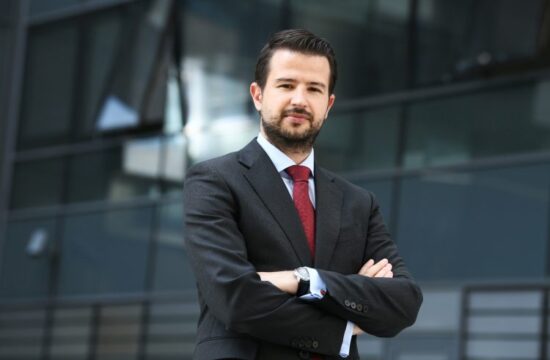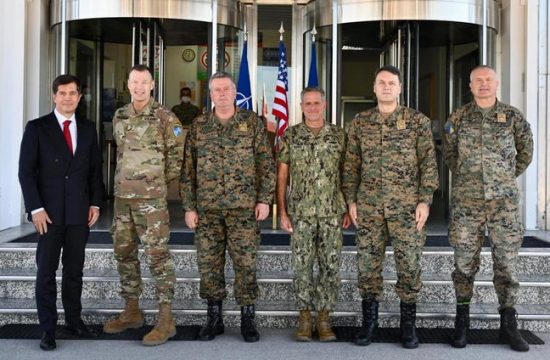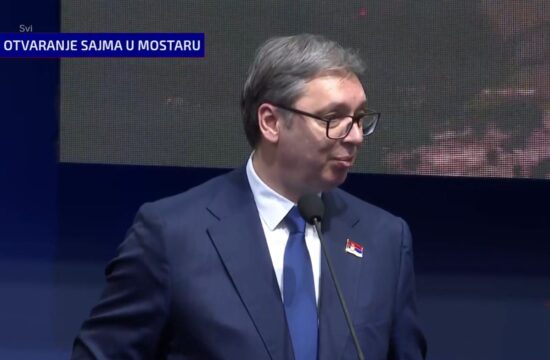Membership of NATO has been turned into a key election issue by Bosnia’s main Serb political opponents, who are accusing each other of opening the way for Bosnia's path towards membership of the western military alliance which many Bosnian Serbs say they are strongly opposed to.
NATO remains unpopular with Serbs in both Serbia and Republika Srpska since the alliance launched airstrikes against the Bosnian Serbs during the 1992-95 Bosnian war and against the Serbian military in 1999 during the conflict between Belgrade and ethnic Albanians in Kosovo.
Since the 2014 elections, the Alliance of Independent Social Democrats (SNSD), led by Milorad Dodik, has been in power in Republika Srpska, Bosnia’s semi-autonomous entity dominated by the country’s Serbs. The Alliance for Changes, a coalition of Bosnian Serb parties won enough votes to represent Serbs at the state level in Sarajevo. However, the two political groups are in fierce opposition and both are competing for votes at the upcoming general elections in October.
The president of Republika Srpska, Milorad Dodik, promised Bosnian Serb voters to block any attempt to move Bosnia closer to NATO and accused his opponents of pushing the country towards membership. In line with neighbouring Serbia, Republika Srpska had declared military neutrality in October last year.
The decision was not supported by the Serb member of Bosnia’s tripartite presidency, Mladen Ivanic, from the Alliance for Changes.
Last month however, Bosnia and Herzegovina adopted a strategy in line with the European Union’s policy which advocates NATO membership. The document was adopted by Bosnia’s three-member presidency which includes the Serb representative, Mladen Ivanic, which is not in line with Serb mainstream opinion.
Dodik’s party accused Ivanic’s coalition of “treason”, saying they conspired with the West and the country’s Bosniaks to weaken Republika Srpska.
“Our interest is Republika Srpska and the Serb people, not Bosnia, and there is no compromise there,” said Dodik and added that Bosnia’s membership of NATO would be a humiliation for the Serb people.
He criticized the adopted foreign policy strategy because it followed the EU’s foreign policy.
“Bosnia and Herzegovina is not a member of the EU, it does not have a candidate status and has no need to align itself in such way. We need to pursue some other policy,” Dodik said.
Explaining the decision Ivanic said that the formal request for Bosnia to join NATO was first adopted in 2009 when the Serb representative in the Presidency was Nebojsa Radmonovic, a member of Dodik’s own party.
“It is cowardly to run away from your own responsibility and to accuse others for your own mistakes regarding NATO,” said Ivanic. “The current level of cooperation with NATO is a consequence of political decisions made by you and the SNSD.”
Bosnia’s Foreign Minister, Igor Crnadak, also a member of the Alliance for Changes, reassured Serbs in Bosnia that the country was nowhere near NATO membership.
“As long as Serbia is not a member of NATO – if it ever is – Bosnia’s membership in this military alliance will remain unacceptable,” said Crnadak.
He also alleged that in 2010 when the new building of the U.S. Embassy in Sarajevo was being opened, Dodik had approached then U.S. Secretary of State, Hillary Clinton, telling her he was the leader of the only Serb political party that supports NATO.




